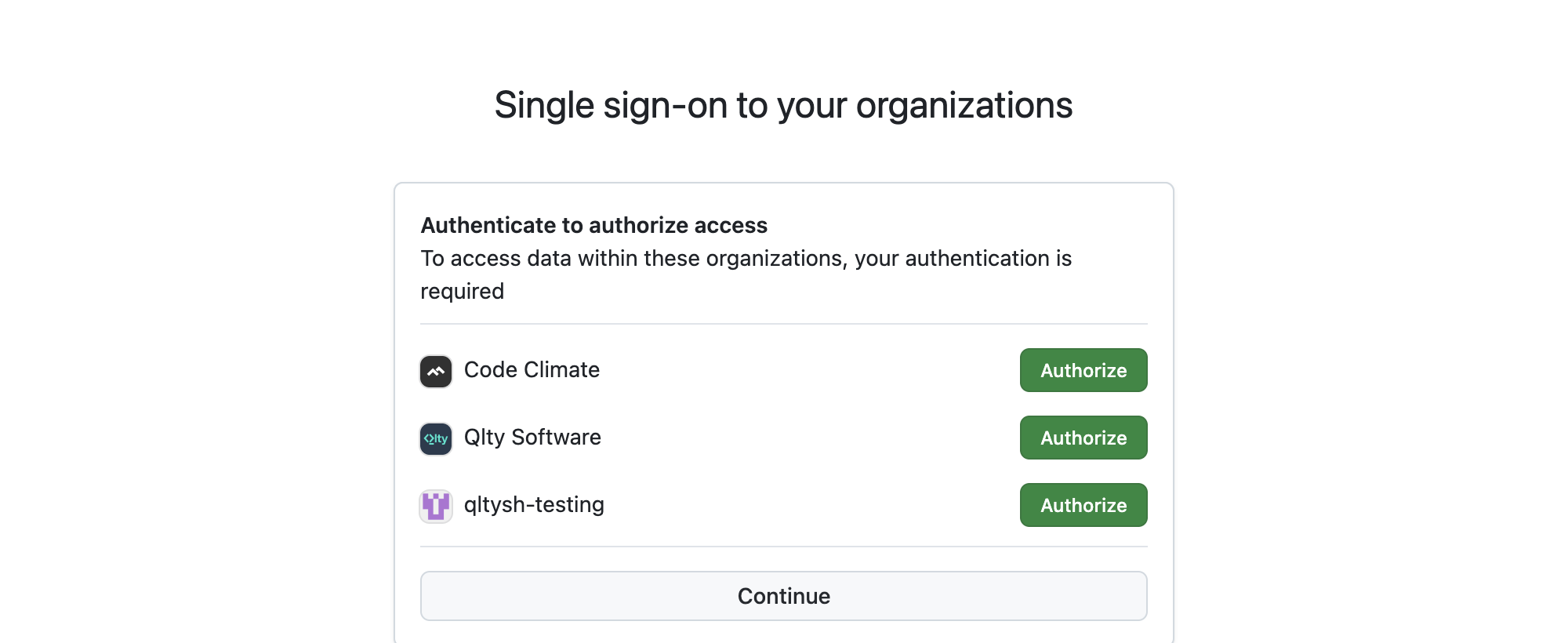Troubleshooting
Analysis Errors
Unknown error (U10)
These errors indicate an unknown problem with our system. Our developers monitor closely for these types of errors. In most cases when they occur, we are already looking into it.
If you see this error, please contact our support team with your project name and a screenshot.
Inconclusive commit status (U11)
This error occurs when pull request analysis starts, but Qlty hasn’t posted a conclusive (green or red) status back to GitHub within 15 minutes. At that point, Qlty will mark your GitHub commit status as error (red).
It’s possible that the analysis succeeded, but an external factor interfered with posting the status back to GitHub (e.g. a GitHub outage, network issue, etc.). If this happens, you will need to retry the analysis.
Analysis timeout
We apply timeouts to analysis runs to keep things running smoothly.
If you find that a pull request or commit analysis frequently times out, see our documentation on Troubleshooting Build Timeouts.
Missing analysis results
Problem: No code review comments or commit statuses are showing on my pull requests.
If you’re not seeing pull request statuses or summary/code comments for your project, first confirm that the Qlty GitHub App has been installed and granted access to your repository. Next, confirm that these features are enabled under Project Settings -> Code Review. For further troubleshooting please contact support.
Code Coverage Issues
Please refer to our docs on Troubleshooting Code Coverage.
Other Troubleshooting
Missing project
Problem: When I go to add a repository as a project, it’s not visible in the list.
If you’re trying to add a project but it doesn’t appear in the list of available projects, first confirm the following:
- Our GitHub Application installation must grant access for that repository.
- The repository must be accessible by you on GitHub.
- Double check that someone hasn’t already added the repository to Qlty
- If the repository has been renamed (in GitHub) since it was initially added to Qlty (or Code Climate Quality), Qlty will not detect the name change automatically. You’ll need to resync your project via the Project Settings in the Qlty UI. (Note: The project will be visible in Qlty under the original name of your repo).
Permission denied error
Problem: I am trying to access a workspace or project but am getting blocked.
If you encounter a permission denied error, consider the following possible causes and solutions:
-
Insufficient access to the GitHub repository: Project-level permissions on Qlty are determined by a user’s GitHub permissions. To view project analysis on Qlty, you need read access to the repository on GitHub. To view project settings on Qlty, you need admin access to the repository on GitHub.
-
Multiple Qlty users: Having more than one Qlty user can cause confusion. If this is the issue, you are likely logged into a user account that hasn’t been added to the workspace owning the project you are trying to access.
Forked PR analysis
Problem: I am unable to analyze PRs raised from a fork
By default, Qlty does not analyze PRs raised from forks of a repo. This functionality is available on an opt-in basis. To enable analysis of PRs from forks, contact support.
- Please list the specific repo(s) for which you’d like to enable this feature
- Note: analysis of PRs from public forks of a repo is not supported.
Missing link to Settings
Problem: I believe I have workspace admin access but I don’t see a link to settings.
To manage workspace settings on Qlty, you must be an admin on the associated GitHub account. Please ensure that you have the appropriate permissions before attempting to access these settings.
Private linter plugins or configurations
Problem: My build is failing because a linter can’t find my private gem/package.
Qlty is unable to access any private gems, packages, or registries during analysis. For example:
-
Rubocop:
Unable to find gem our-private-rubocop-config; is the gem installed?- Some users may maintain their Rubocop configuration within a private gem; this is not currently supported.
-
OSV-Scanner:
failed extracting pom.xml- OSV-scanner scans for vulnerable dependencies, and it cannot access private packages or package registries. It is possible to configure OSV-scanner to ignore specific packages, as documented here.
-
For more help with configuring linter plugins, see our docs on Linter Extensions.
Authentication Issues
SAML re-authentication required
Problem: I’m seeing a “SAML re-authentication required” error when trying to access a project or workspace.
This error occurs when your GitHub organization requires SAML single sign-on (SSO) authentication, and Qlty’s authorization to access that organization has expired or been revoked. GitHub organizations that use SAML SSO require periodic re-authorization of third-party applications like Qlty.
Why this happens:
When you first authorize Qlty to access your GitHub account, you also authorize it to access any organizations you belong to. However, organizations using SAML SSO can require that this authorization be refreshed periodically for security purposes. When the authorization expires, Qlty can no longer access repositories in that organization until you re-authenticate.
How to resolve:
- Log out of Qlty by clicking your profile menu and selecting “Log out”
- Log back in to Qlty using GitHub
- During the GitHub authorization flow, you may see a “Single sign-on to your organizations” screen
- Click the “Authorize” button next to each organization that requires SAML authentication
Clicking “Continue” alone is not sufficient. You must click the “Authorize” button next to each organization that requires re-authentication.

If you continue to experience issues after re-authorizing, contact your organization’s GitHub administrator to ensure the Qlty GitHub App is properly configured for SAML SSO access.